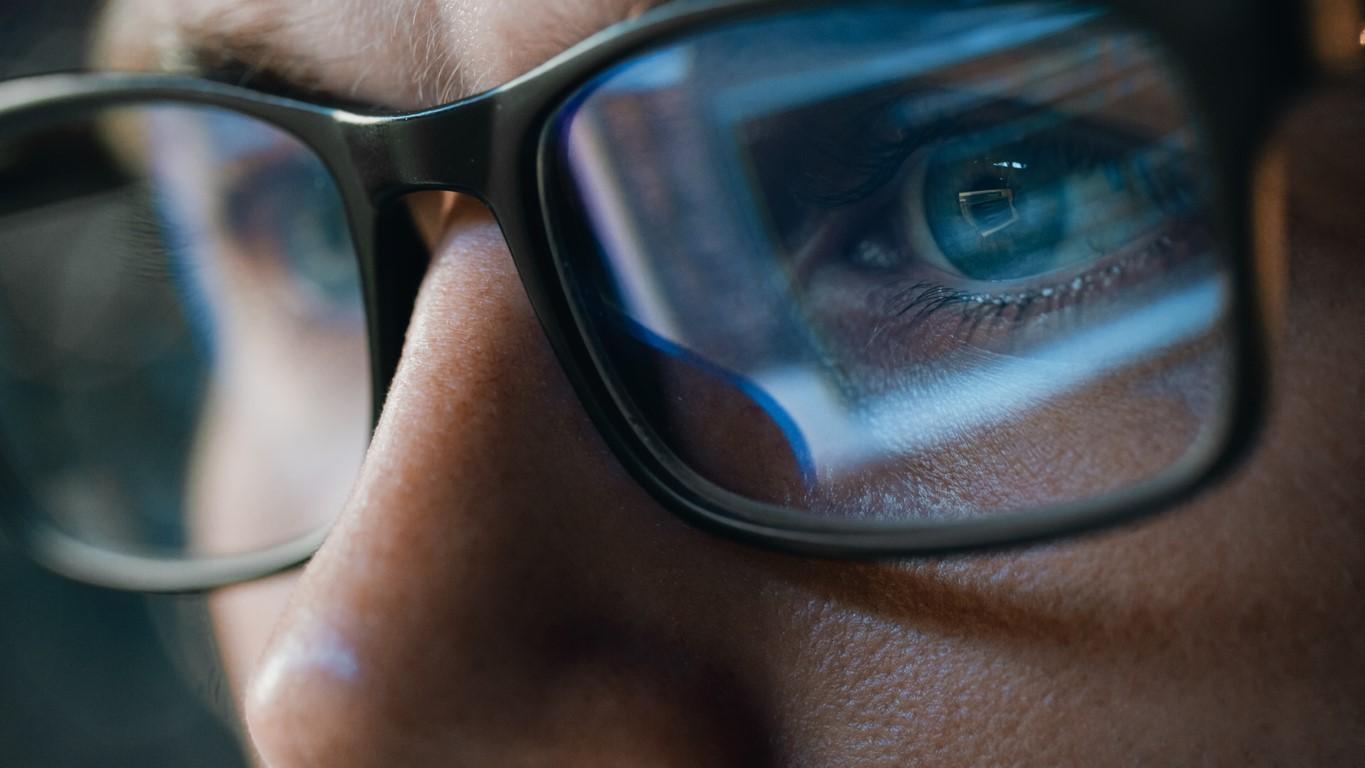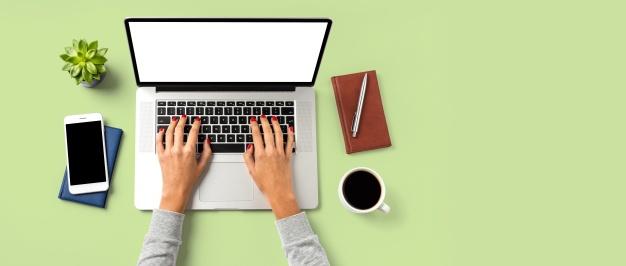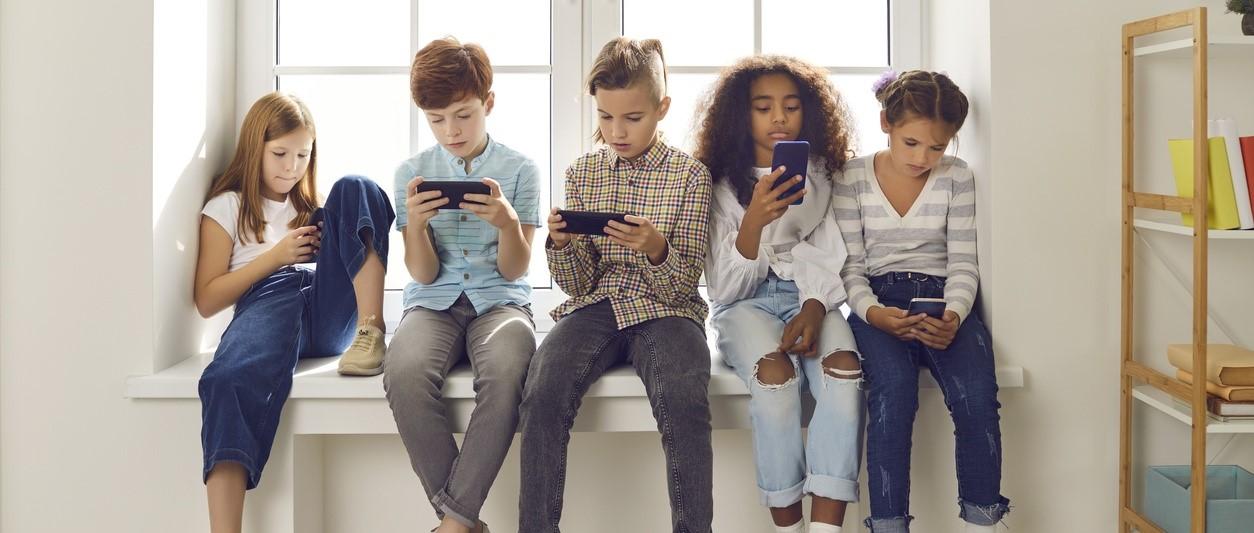
Blue light filters: do they really work?
Peer reviewed by Dr Krishna Vakharia, MRCGPLast updated by Matt BinnyLast updated 3 Jul 2023
Meets Patient’s editorial guidelines
- DownloadDownload
- Share
- Language
- Discussion
Most of us spend several hours looking at digital screens every day, all of which emit varying levels of blue light. There's debate about the damage and effects blue light has on our vision and health, and if blue light filters help. We investigate if they really work.
In this article:
Continue reading below
What is blue light?
Around one-third of all the light we see is blue light, with sunlight being the main source. Blue light is also known as high-energy visible (HEV) light. Unlike other types of light, our eyes cannot filter it on their own. This means blue light can reach the retina without restriction.
The most common sources of artificial blue light are:
Flat-screen LED televisions.
Fluorescent lights.
LEDs.
Compact fluorescent light (CFL) bulbs.
Smartphones.
Computer screens.
Tablets.
What is a blue light filter?
Back to contentsA blue light filter is designed to protect our eyes from any harmful effects of blue lights.
People spend around seven hours a day looking at digital screens. As this has raised safety concerns, blue light filters are now commonplace across a range of products to increase safety for long-term use - they can be used on everything from phones to blue light blocking sunglasses.
Continue reading below
How does blue light affect the eyes?
Back to contentsThere is debate as to whether blue light damages our eyes. Studies show that high levels of blue light, over prolonged periods, have the potential to damage the retina - and that blue light blocking glasses could help prevent up to 80% of this damage1. An injured retina can lead to vision loss and distortion.
But when it comes to a smaller amount of blue light, it's less about eye damage and more about how it affects your body.
One of the most common issues people have with looking at screens a lot is digital eye strain. This occurs because you blink less when looking at screens, which reduces the amount of moisture in your eyes. Symptoms of digital eye strain include dry eyes, headaches, nausea, neck pain, and more. This is often mistaken for the effects of blue light. At present, there's no evidence that blue light filters can help prevent or ease digital eye strain2.
If you experience symptoms of digital eye strain, the following may help:
Adjust your screen's brightness.
Eliminate screen glare.
Ensure your screen isn't brighter than the other lighting in the room.
Use filters to adjust colour warmth throughout the day, as this reduces eye strain in the evening.
Don't sit too close to the screen.
Benefits of blue light filters
Back to contentsEye damage
Blue light can cause retinal damage, but the evidence for this involves extreme exposure over consistent and long periods3. In truth, the effects of day-to-day blue light exposure are not yet fully understood - and we don't yet know how beneficial blue light filters are.
Bhavin Shah is a behavioural optometrist at Central Vision Opticians. He says that the evidence for blue light filters is inconclusive, and instead opts for a spectral filter on his personal sunglasses. "This filters out more than blue in the spectrum of light and makes my eyes more comfortable when i'm driving in overcast weather."
Sleep
Blue light exposure affects your circadian rhythm, the body's internal clock3. Light is critical for how it behaves and adjusts to environmental factors - such as day and night. This is why too much exposure to artificial light before bedtime - such as blue light from a screen - can make it hard to fall asleep.
Blue light stimulates your eyes and brain, sending signals to your body's internal clock. This in turn affects how your body produces melatonin, the sleep-inducing hormone. So, if you find yourself scrolling through your phone or watch TV before bed to wind down at bedtime, you're actually making your body more alert.
Reducing or cutting out screen time before bed is beneficial for improved sleep and a healthy sleep pattern. For screen-time you do have, blue light filters can help limit blue light exposure.
Continue reading below
Further reading
Back to contentsPatient picks for Online and social media

Healthy living
How to find reliable health information online
Have you ever felt a twinge somewhere or experienced an unusual symptom and gone online to find out what could be causing it? If you have, you're not alone. But with such an abundance of content available at our fingertips, how can you be sure that what you're reading online is accurate and safe?
by Allie Anderson

Healthy living
How to talk to your child about social media
When the coroner's report on Molly Russell - the 14-year-old who died from an act of self-harm -confirmed that social media had played a part in her death, it showed that social media content really can damage the mental health of our children and teenagers. How can parents and carers protect their children from this ever-evolving threat?
by Gillian Harvey
Continue reading below
Article history
The information on this page is peer reviewed by qualified clinicians.
3 Jul 2023 | Latest version
3 Jul 2023 | Originally published

Ask, share, connect.
Browse discussions, ask questions, and share experiences across hundreds of health topics.

Feeling unwell?
Assess your symptoms online for free
Sign up to the Patient newsletter
Your weekly dose of clear, trustworthy health advice - written to help you feel informed, confident and in control.
By subscribing you accept our Privacy Policy. You can unsubscribe at any time. We never sell your data.